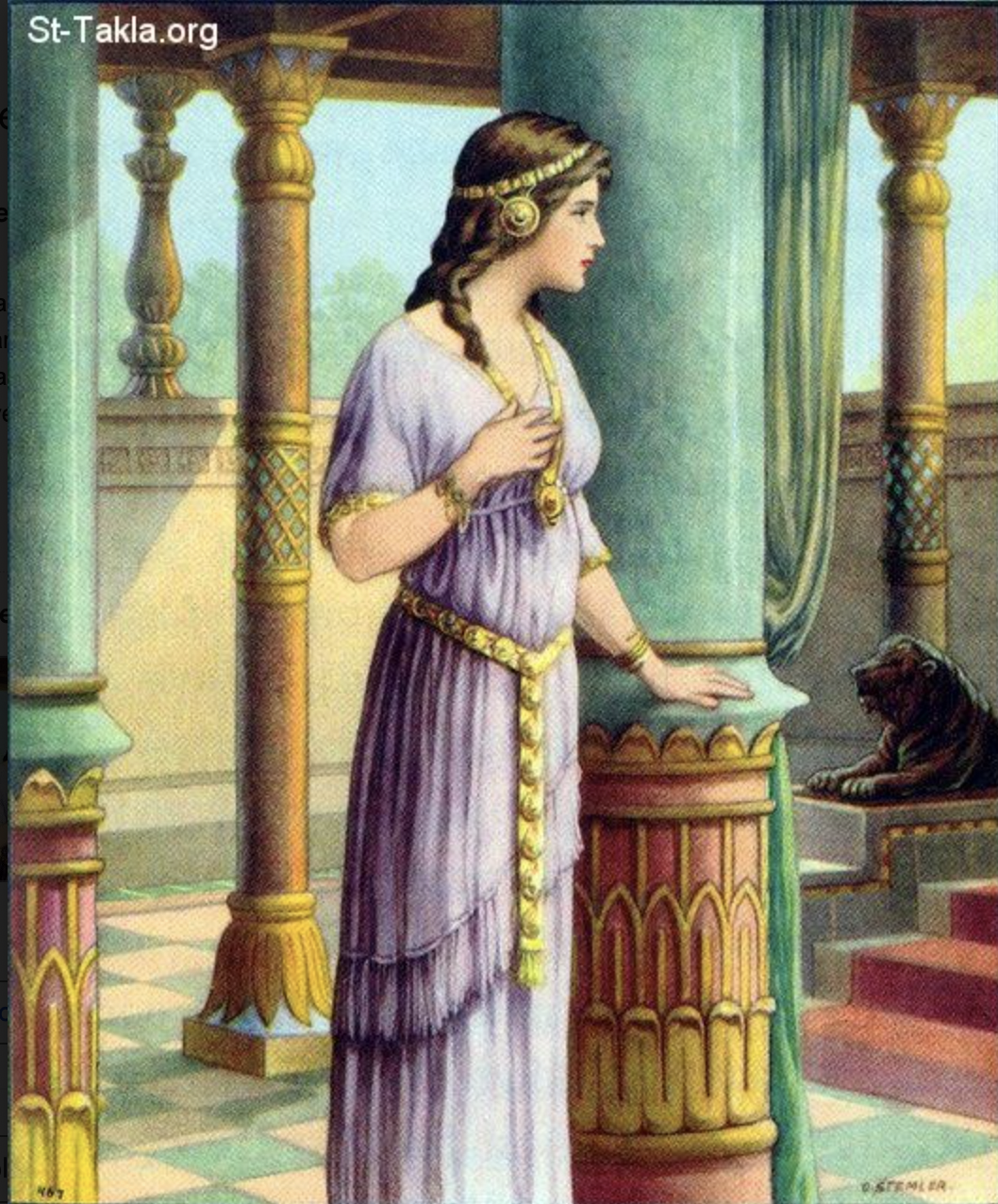By Claire Hines, Year 11
The sun had risen over the city of Susa, its golden rays now caressed the houses below the
palace with their fiery light. On the balcony of the Royal Woman’s private quarters, Queen
Esther stood watching the increasing radiance, her hands resting lightly on the marble
banister.
In an hour’s time King Xerxes would be in his audience chamber, seated on his royal throne
from which he ruled and administered justice to all of Persia and beyond. And in an hour’s
time she, Queen Esther, would go to him in order to beg him to save the Jews of his empire
whom he had unwittingly condemned to an impending massacre.
Esther herself was a Jew, though the King did not know it, and the only one in a position to
speak out for them that they might be spared from annihilation. She knew that anyone who
went before the Persian King uninvited was put to death unless he saw fit to pardon them.
Was this the last time she would see the sun rise over the Lord’s blessed earth?
She whispered to the morning breeze the words of a song of her people:
“He who dwells in the secret place of the Most High, shall abide under the shadow of the
Almighty. I will say of the Lord: He is my refuge and my fortress; my God in Him I will trust.”
The words gave her strength, and comforted her as she returned to her chambers and called
for her maidservants. The two women at hand hurried to her side to know her bidding.
“Fetch my silken lavender gown with the golden girdle. For I will go to the King in less than
an hour, and pray he extends his merciful sceptre to me that I might live and speak to him of
a matter of grave importance.”
Her ladies in waiting turned pale and immediately burst forth with a flood of protestations.
But their mistress would not be moved by their pleas, and so they turned to do as she had
ordered with tears in their eyes, for Esther was loved by all who saw her.
They dressed her, anointed her with sweet perfume, and carefully arranged her hair under
her golden circlet, symbol of her rank. Then they painted her face, lips and eyes with
cosmetics and clasped gold jewellery about her neck and wrists.
Then weeping they followed her down the alabaster staircase to the inner court of the
King’s palace, opposite the throne room. A score of Xerxes’ royal guards stood at the door,
keeping out the ambassadors and officials who were waiting to speak to his majesty.
When they saw Esther approach, the throng made way for her, and she walked softly
towards the soldiers smiling right and left in gratitude. The King had just concluded his first
meeting, and the royal steward was coming to fetch the next visitors. When he arrived and
saw the Queen, he bowed low with deep respect and asked her how he might help her.
“I pray you to announce me Balthasar to my Lord, for I would crave urgent speech with
him.”
He appeared flustered and answered courteously: “Surely your Highness knows the penalty
that awaits all people who do not obey the King’s laws. Remember Queen Vashti!”
“I remember Balthasar. Who was to go next?”
“Prince Cambyses, the envoy of the Medes.”
The man in question inclined his head kindly before the young woman, and she asked him:
“Noble Prince, I implore you to let me go before you to the king. You will be doing me a
great favour.”
He smiled with tears in his eyes, for he knew what peril she was risking, and agreed readily.
She thanked him and turned to Balthasar who announced her name loudly so that it
resonated throughout the audience chamber:
“Her Royal Highness Queen Esther of all Persia and beyond.”
The guards stood to attention, and Esther stepped into view in the doorway. All chatter
ceased, and all looked from the pale face of the Queen to the throne at the end of the
throne room where King Xerxes sat. There was a moment’s hesitation during which all held
their breath, before the King lowered his royal sceptre as a sign that she was pardoned and
invited to come before him.
Xerxes watched as his wife walked up the carpeted path towards him. Her face radiant with
relief and a curious smile on her lips. She approached him reverently and once she reached
the ivory posts that marked as far as a visitor could go, she knelt at his feet.
He smiled kindly and bade her come to him, a sign a high favour he had accorded to no one
else previously. She obeyed and reached out and touched the top of the sceptre to show
her acceptance of his decision. He declared proudly: “Never has a man been blessed with a
greater wife! What do you wish my Queen? What is your request? It shall be given to you,
up to half the kingdom!”
Esther breathed a few words of thanks to her God before answering, for truly today a divine
victory had been won.
Psalm 91 v 1-2 (NKJV)


